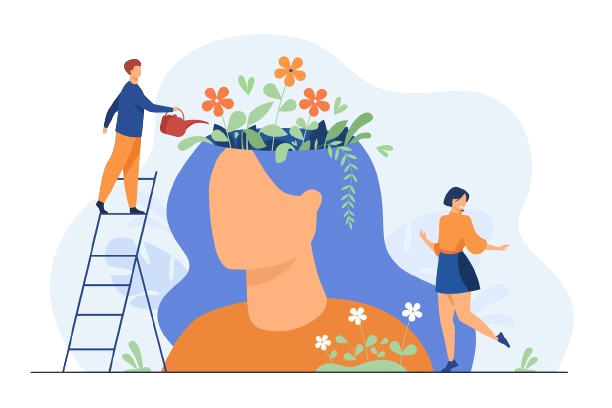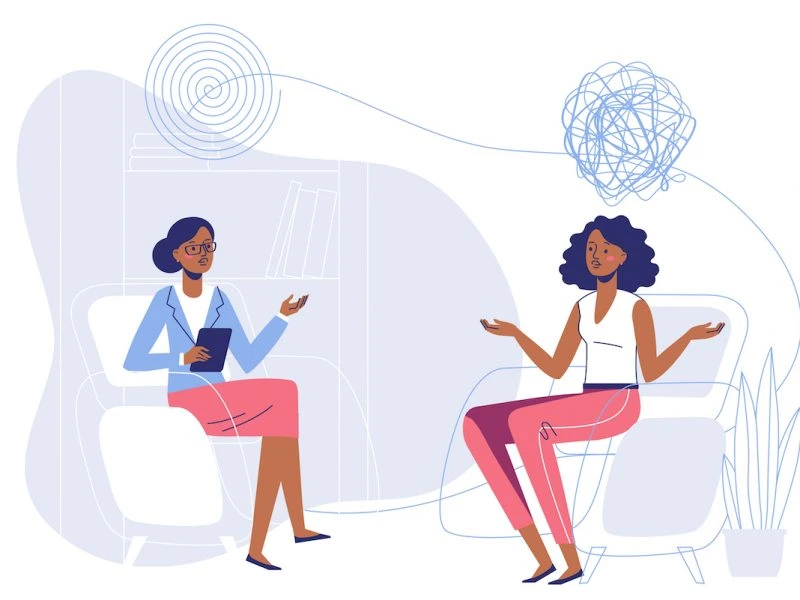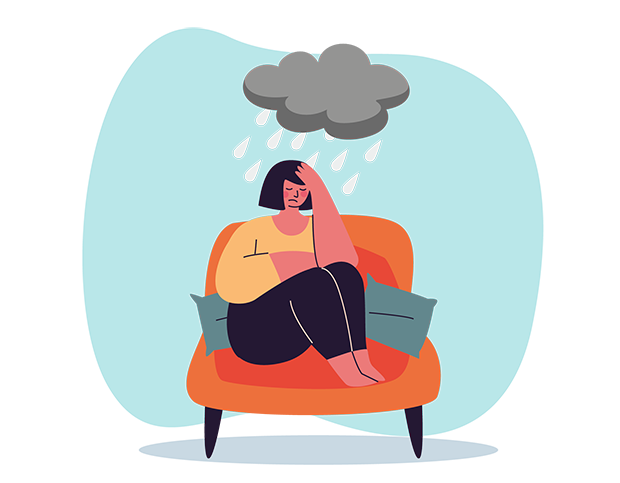Gabapentin
Someone with depression or anxiety has a lot of choices for prescription medications that help ease their symptoms. However, for some, the usual drugs prescribed for those mental health disorders don’t meet their needs. Gabapentin can be the drug that ends up giving them the benefits they need. Someone considering this medication may wonder, “Is Gabapentin addictive?”
Atlanta Integrative Psychiatry understands the concern each individual in treatment for a mental health disorder has about the meds they take. We explore Gabapentin, how it works, and if a person should be concerned about developing a reliance on it.

What is Gabapentin?
Gabapentin is an anticonvulsant medication prescribed to treat different conditions. It helps manage epileptic seizures, postherpetic neuralgia, which is pain caused by shingles, and restless leg syndrome. Gabapentin is a generic drug sold under brand names like Gabarone, Gralise, Neurontin, and FusePaq Fanatrex. It is available in tablets, capsules, and an oral solution. As with many types of prescription medications, many people will wonder, “Is Gabapentin addictive?”
How is Gabapentin Used for Mental Health?
While originally developed to treat epilepsy and other conditions, in more recent years, Gabapentin has been used to treat certain mental health disorders. It is part of what is called off-label treatment, which refers to using a drug that is not FDA-approved for a specific course of treatment. This happens when evidence supports that a specific medication can bring relief or help heal someone, even though it has yet to receive approval from the FDA. This can prove beneficial for those who do not respond well to available drugs or who have conditions for which no medication yet exists. A healthcare provider will be able to explain a person’s options for off-label treatment. In many cases, using Gabapentin in this way helps improve the symptoms of poor mental health.

Gabapentin for Anxiety
Gabapentin has become an option to help treat people who have anxiety disorders, including social anxiety disorders and panic disorders. For some people, one of the benefits is that Gabapentin has less of a risk of developing an addiction to it than drugs like benzodiazepines. It can also help people who have tried anti-anxiety medications that didn’t provide them with the results they need.

Gabapentin for Depression
Gabapentin can function as a mood stabilizer that helps reduce the symptoms of depression. It can be effective for those who don’t respond well to other types of mood stabilizers and need additional medication. As it does for people with anxiety, it can be a better choice because it is less likely to cause addiction as can happen with drugs like benzodiazepines.
Is Gabapentin a Narcotic?
Along with asking the question, “Is Gabapentin addictive?”, many people may wonder if it’s a narcotic. The Drug Enforcement Administration (DEA) states that although many people refer to all drugs as “narcotics”, today that word is used to define opium, opium derivatives, and their semi-synthetic substitutes. While at one point, the drug could be called a narcotic, Gabapentin is no longer classified as one.
Is Gabapentin Addictive?
Is Gabapentin addictive? It can be for some people. Many people use it for their medical or psychological condition and never develop a problem with it. For others, an addiction can develop that causes them to need professional treatment to stop abusing it. One of the risks is when someone uses the drug over a long period and develops a tolerance to it. This can cause them to increase the amount they take, often without the supervision of a physician, and addiction takes hold. When someone stops taking Gabapentin, they should do so under the guidance of their doctor, who can monitor them for any withdrawal symptoms and treat them.
How Do I Know I Need Gabapentin?
If you have one of the common conditions Gabapentin is used to treat, speak to a doctor about your options. This includes having epilepsy, postherpetic neuralgia, and restless leg syndrome. An evaluation of your physical condition can be made and a determination if Gabapentin is the right medication for you. If you would like to explore your options for using Gabapentin to relieve symptoms of anxiety and depression, your doctor can talk to you about this, too.
Gabapentin Side Effects
Side effects can happen when taking Gabapentin. While many are short-lived, others can last longer. Common side effects include dizziness, drowsiness, and peripheral edema, which is swelling in the hands, arms, feet, ankles, or legs. Other side effects that may occur include:
- Nausea
- Vomiting
- Headache
- Diarrhea
- Constipation
- Drowsiness
- Blurred or double vision
- Unusual eye movement
- Dry mouth
- Shakiness
- Difficulty speaking
- Poor coordination
- Changes in appetite
- Anxiety
- Strange thoughts
All side effects should promptly be reported to the prescribing physician in case any adjustments to the dosage or type of medication being taken become necessary.
How Long Does It Take Gabapentin to Work?
When someone first begins taking Gabapentin, it can take one to two weeks for it to start to take effect, and even longer for the full effect to kick in. When used for medical conditions, it can take an hour or two after taking it to feel it working. For anxiety and depression, the full effect is typically felt after two weeks. Influential factors include the dosage taken and how each individual responds to Gabapentin.
Begin Treatment for Depression and Anxiety in Atlanta Today
A combination of different types of therapy and the right prescription drug can dramatically change how a person with depression or anxiety feels. Atlanta Integrative Psychiatry employs a staff of experienced therapists who devote their careers to helping people learn to manage their mental health. We provide several choices for therapy that allow people to enjoy an elevated sense of control and freedom in how they move in the world. Our program also provides options for medications that help minimize their symptoms. If you wonder, “Is Gabapentin addictive?” because you are interested in taking it, we can answer any questions you have.
If you have lived with the daily challenges of depression or anxiety, it’s time to get the help you deserve. Contact us now and find out how easy it is to enter effective treatment and begin the journey to good mental health.
You are not alone. You deserve to get help.
Atlanta Integrative Psychiatry is an Industry leader in mental health treatment . Our team of top medical experts specialize in dual diagnosis treat and are committed to ensuring that each patient is treated as an individual.
Call us today, we're avialable 24/7.



